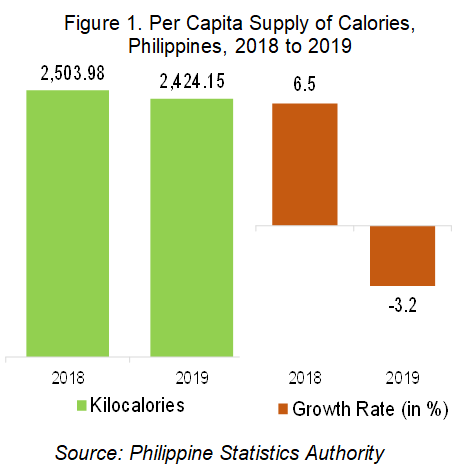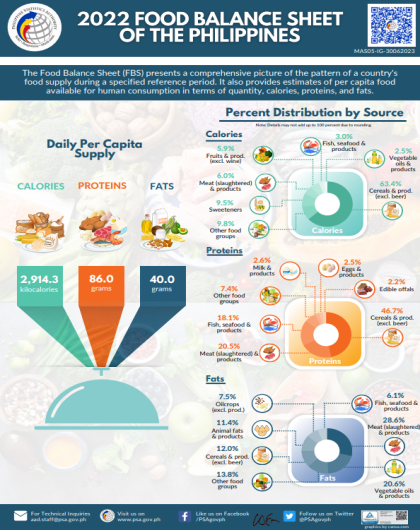The Daily Per Capita Food Supply of Calories was Recorded at 2,914.3 Kilocalories in 2022
The Food Balance Sheet (FBS), compiled by the Philippine Statistics Authority (PSA), is an aggregated and analytical data set that presents a comprehensive picture of the pattern of a country’s food supply during a specified reference period. It provides estimates of per capita food available for human consumption in terms of quantity, calories, protein, and fat contents.
 Calories
Calories
The per capita supply of calories from the aggregated food products was recorded at
Proteins
In 2019, the daily per capita food supply of protein went up to
Fats
The per capita food supply of fats per day at
Self-Sufficiency Ratio (SSR)
The country’s self-sufficiency ratio (SSR) for the aggregated food products was recorded at
Import Dependency Ratio (IDR)
The import dependency ratio (IDR) for food was recorded at
DENNIS S. MAPA, Ph.D.
Undersecretary
National Statistician and Civil Registrar General

